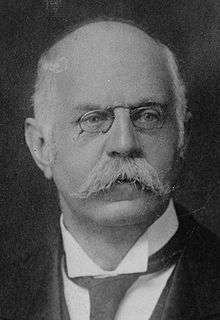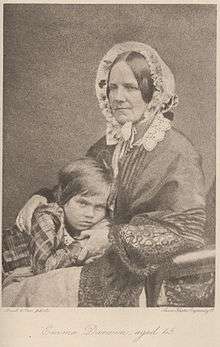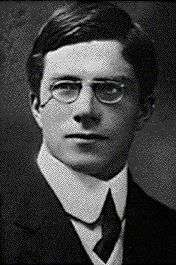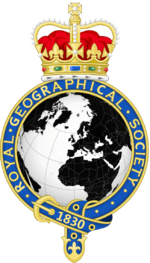Leonard Darwin


Major Leonard Darwin (15 January 1850 – 26 March 1943), a son of the English naturalist Charles Darwin, was variously a soldier, politician, economist, eugenicist and mentor of the statistician and evolutionary biologist Ronald Fisher.
Biography

Leonard Darwin was born in 1850 in Down House in Kent, England into the wealthy Darwin-Wedgwood family. He was the fourth son and eighth child of the naturalist Charles Darwin and his wife Emma (née Wedgwood), and the last of Darwin's immediate offspring to die. He considered himself the least intelligent of their children (brothers Frank, George and Horace were all elected Fellows of the Royal Society). He was sent to Clapham School in 1862.
Darwin joined the Royal Engineers in 1871. Between 1877 and 1882 he worked for the Intelligence Division of the Ministry of War. He went on several scientific expeditions, including those to observe the Transits of Venus in 1874 and 1882.
In 1890, Darwin was promoted to the rank of major, but soon left the army and from 1892 to 1895 was a Liberal Unionist Member of Parliament (MP) for Lichfield constituency in Staffordshire, where his grandfather, Josiah Wedgwood II, had also been an MP. He wrote vigorously on the economic issues of the day, bimetallism, Indian currency reform and municipal trading.
Darwin married Elizabeth Frances Fraser on 11 July 1882, but she died on 13 January 1898 and was buried in Putney, London. On 29 November 1900 he remarried, to his first cousin Charlotte Mildred Massingberd (1868–1940), the daughter of Edmund Langton (1841–1875) and granddaughter of Rev. Charles Langton and his wife Charlotte Wedgwood, the sister of Leonard Darwin's mother Emma. Their shared ancestor was Josiah Wedgwood II. Charlotte Mildred Massingberd's paternal grandfather, Charles Langton (1801–1886), married Charles Darwin's sister Emily Catherine Darwin, after Charlotte Wedgwood's death. Since Charles Darwin and Emma Wedgwood were cousins, Charlotte Mildred Massingberd was also a second cousin on his father's side. Leonard Darwin had no children from either marriage.
President of the Royal Geographical Society from 1908 to 1911, he was then Chairman of the British Eugenics Society in 1911–28 (succeeding his half-cousin once removed Francis Galton), and became Honorary President from 1928 until his death. In 1912 the University of Cambridge conferred on him an honorary doctorate of science.
Darwin played an important part in the life of the geneticist and statistician Ronald Fisher, supporting him intellectually, morally and sometimes financially. Fisher, replying to Darwin's congratulations on his election to the Royal Society, replied on 25 February 1929, "I knew you would be glad, and your pleasure is as good to me almost as though my own father were still living."
An example came later in 1929. Some years before Fisher had resigned from the Royal Statistical Society after a disagreement. Darwin regretted the development and engineered Fisher's re-entry by making him the gift of a life-time subscription to the society (see letters of 25 and 27 June). Fisher's 1930 book The Genetical Theory of Natural Selection is dedicated to Darwin. After Darwin's death in 1943 at the age of 93, Fisher wrote to Darwin's niece, Margaret Keynes, "My very dear friend Leonard Darwin... was surely the kindest and wisest man I ever knew."
Leonard was the last surviving and the longest lived of Charles Darwin's ten children. He and his second wife were buried at Forest Row Cemetery, Forest Row, East Sussex.
Works
- The Need for Eugenic Reform (London: Murray, 1926)
- What is Eugenics? (London: Watts & Co, 1928)
References
- A. W. F. Edwards, 'Darwin, Leonard (1850-1943)', Oxford Dictionary of National Biography, Oxford University Press, 2004.
- The editor's introduction to the volume of Darwin-Fisher correspondence (links below) has a sketch of Darwin's life.
- Two of Darwin's nieces, daughters of George Howard Darwin, described their uncle. Gwen Raverat wrote about "Uncle Lennie" in Period Piece: A Cambridge Childhood (London: Faber and Faber, 1952)
- Margaret Keynes, wife of Geoffrey Keynes, wrote a more formal piece which was published in the Economic Journal. 53, 439–48 (1943).
This was preceded by an account of Darwin's economic writings by the editor of the journal, Margaret's brother-in law, John Maynard Keynes. Keynes explained the decision to publish the niece's "very personal account": "Leonard Darwin's life covered so vast an epoch of change in men's ideas, his own attitudes towards the problems of his age were so characteristic of the best and noblest intelligences of his time, and he grew up in the environment of a family of so immortal a renown..." (p. 439) Darwin expressed his feelings about Keynes in a letter to Fisher (Correspondence p. 141), "I neither like him nor trust him.... But he’s very clever...."
External links
- Works by or about Leonard Darwin at Internet Archive
- Leonard Darwin at Find a Grave
- Leonard Darwin at Find a Grave for his first wife: Elizabeth Frances, née Fraser;
- Leonard Darwin at Find a Grave for his second wife: Charlotte Mildred, née Massingbird
- Hansard 1803–2005: contributions in Parliament by Leonard Darwin
- There is a short biography and photographs at Charles and Emma Darwin's children on Darwin Day Celebration
- Information about Leonard's correspondence with his father can be found at The Darwin Correspondence Online Database
- Fisher's tribute to Darwin is in his letter of thanks to Margaret Keynes Calendar of Correspondence with Margaret Keynes
- J. H. Bennett's edition of the Darwin-Fisher correspondence is available on-line at Darwin — Fisher correspondence with a sketch of Darwin's life
- The original letters have been scanned and are available at Calendar of Correspondence with Leonard Darwin
| Parliament of the United Kingdom | ||
|---|---|---|
| Preceded by Sir John Swinburne |
Member of Parliament for Lichfield 1892–1895 |
Succeeded by Henry Charles Fulford |
